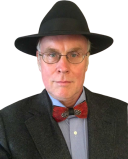Autism
What Does It Mean When I Say, "I'm Autistic?"
Thoughts on neurodiversity, "coming out" and pride in a neurotypical world
Posted October 19, 2014
Why do you say, I’m autistic? Why do you say, he’s autistic? Aren’t you more than a label? Many people have asked me that; their words implying some well-intentioned criticism of my word choice. Surely I meant to say something different?
What if I turn the question around? Why do you challenge me when I say I’m autistic? Would you challenge me in the same way if I said, “I’m a Protestant?” If so, what would your reason be? Do you think I have the same right to challenge how you describe yourself, however that may be?
Please be assured that I meant what I said. If I had intended to say something else I would have. Indeed, I have recognized different attributes of others and myself on countless occasions, such as ...
He’s a factory-trained Mercedes technician;
She’s a master gardener;
He may look like a bum but he’s really a renowned psychiatrist.
There are times when those narrower descriptors are appropriate, and times when broader ones—like autistic—are a better fit. The truth is, all of us can be described in many ways and being Autistic is no different than being short-tempered, or being a renowned chef, or even being a really good (or bad) driver.
Sometimes we use descriptors because we want to qualify people for one thing or another. You express doubt about Dan’s ability to fix your car. I tell you he’s a factory-trained technician to reassure you.
When we use broad descriptors like I’m Jewish, or I’m autistic, or even I’m a Freemason we do that for a different reason. We say those things to place ourselves within a larger community. We say that to assert that we are part of something bigger than ourselves. We say it because doing so makes us feel better about ourselves.
I think that’s something that escapes many people, when it comes to autism. Perhaps ignorance of that fact explains why they feel free to challenge people who say they are autistic when they would not dare challenge a person for saying they are Catholic.
The truth is, being Catholic or being Jewish means certain things. If you tell me you are Catholic, I can know something of your beliefs and values from that simple three-word statement because I know something of what those things stand for. And more than that, I know being Catholic is important to you, and I will keep that in mind when we interact. Admittedly, I may “know” different things about Catholicism or Judaism than my neighbor or you but the fact remains, we all associate those words with something—a belief set and certain behaviors—that transcend individuality.
It’s just so with autism. In most cases, a statement like, “I am xxx,” really means, “I am proud to be xxx and part of the xxx community.” That, indeed, is how it is with autism and me. There was a time that autism was seen as a pure disability; the gifts it could confer went unrecognized. Now that's changing, and autistics are part of the emergent Neurodiversity momement, which asserts that neurological variation is essential if our species is to thrive. We may be only 1.5% of humanity, but without us, man might still be in caves.
There was a time I was ahamed to be differnet, but now I can say that with pride. We may be disabled in many social settings. Some of us are disabled all the time. But we bring something unique to the world—each and every one of us. We're needed.
This does not mean we don't need help, services, and sometimes remediation of major medical challenges. This does not mean some of us struggle to live independently. Those things are real parts of autism and most of us live with aspects of disability every day. The phrase "I'm autistic" does not dismiss those challenges; it merely asserts our identity, equality, and value. That is independent of ability or disability.
I was always autistic but I didn’t know till I was 40. When I found out, it was in a sense like a spiritual homecoming. All my life I had felt inferior to others because I saw my social failures, and I saw the success of people around me. Sure, I could make money, but other people could make friends in great numbers. I couldn’t, and I ascribed that failure to inferiority. When I talk to other adults who learned of their own autism late in life they often express similar life-long feelings of inferiority.
My autism didn’t make me look different, but it made me act very different, and as a result I was isolated and picked on as a kid. Had I been visibly different my parents could have explained my mistreatment by telling me I was picked on for my recognized difference. But there was no apparent cause for my difference. The result—I was just a bad kid. And countless other autistic kids grew up that same way. We are beginning to speak out today to ensure that mistreatment is not perpetrated for yet another generation.
Learning I was (am) autistic puts so much that was formerly unexplained into perspective. Just as religion gives some people a framework for their lives, knowing I am autistic gives me a framework for mine. Knowing that my social challenges stem from autism, not inferiority, is a big deal. Understanding that I am different, with a mix of gift and disability, is a big deal too.
Explaining my earlier challenges in a neutral light—as opposed to my being defective—was and is a really big deal to me, as it is for countless other autistics. However each of us perceives being autistic, the fact is, it’s a neutral and non judgmental explanation of how we are. We may like how or are, or we may hate it, but being this way because of autism is not a judgment as were the childhood alternatives I was offered.
There was not much of autism community when I got my diagnosis, but there is now. Just as I can find a synagogue or church in any distant city, I encounter autistic people wherever I go. We are everywhere! And there is a great power and comfort in that realization.
The autistic community includes autistic people and the people who love us—our friends and families and people who work to make our lives better. For most adult autistics I suggest this community is - or should be—central to our lives.
Not every autistic person feels this way. Some feel broken, and seek a cure. Others say "they are just people" and don't identify with any group. Some just want to be left alone. There's room for all those points of view.
There are times I want to hang out with fellow car mechanics. There are evenings I want to be around camera enthusiasts. There are days I enjoy in the company of academics. Finally, there are the times I want to be around autistics.
Does one mean more than the others? That is a question each of us answers for ourselves, and I suspect it changes from moment to moment.
John Elder Robison is an autistic adult and advocate for people with neurological differences. He's the author of Look Me in the Eye, Be Different, Raising Cubby, and the forthcoming Switched On. He serves on the Interagency Autism Coordinating Committee of the US Dept of Health and Human Services and many other autism-related boards. He's co-founder of the TCS Auto Program (A school for teens with developmental challenges) and he’s Neurodiversity Scholar in Residence at the College of William & Mary. The opinions expressed here are his own. Find him online at www.johnrobison.com or @johnrobison on Twitter




